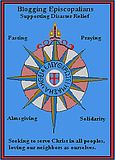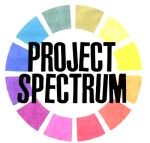Epiphany in the Candy Aisle
Advent 2, Year B, December 4, 2005Mark 1:1-8
St. Augustine's, OKC
Two hat tips: one to
Crossmarks for the Fowler quote, and to Dylan for the idea about this lectionary only being the beginning of the story.
These chocolate biscuits were the subject of a profound spiritual epiphany this week.. (I held up a package of German cookies).
A friend and I had gone to a store that carried all sorts of imported goods to look for some presents, and as we wandered through the store I found myself in the aisles devoted to imported foods, especially the aisles and aisles devoted to chocolates from other countries, Cadbury and Lindt and Milka and these little cookies, and a host of others were tempting me in full color, three D surroundsound..
I was standing there, dizzy from the overwhelming emotions I have about these sweets. Because these are chocolates from my childhood, and not only do they represent something that tastes pretty yummy, they also represent our family history, my father’s longing for his Austrian childhood and his British adolescence, and my complicated relationship with him, when sometimes a love for Viennese pastries and Cadbury fruit and nut bars seemed to be the only thing we might share.
And I was stuck in the aisles, torn between the feelings of desire for, well, everything that was on those shelves, and trying to decide what I really wanted to buy, and completely forgetting about the fact that I was shopping for holiday gifts for other people, and losing track of where my dear friend was in the store.
It suddenly hit me how much power and control these candies had over me. And I was almost sick from realizing how much I was possessed by the feelings and desires I had for them. (Obviously, that realization didn’t stop me from buying a few). As we returned to the minivan in the parking lot, I was still processing what had happened, the revelation of how much I could be controlled by my sweet tooth. The chocolate had made me forget what I was doing, set aside my project of thinking about gifts for other people, forget that I was in the store with someone else. My relationship with food had the potential to interfere with my relationships with others, and therefore, there’s a pretty good chance that it is not part of a right relationship with God.
So the Gospel for this week took on a new cast. “The beginning of the Good News of Jesus Christ. John the Baptizer appeared in the wilderness, preaching repentance and baptism for the forgiveness of sins.
Repentance is one of those words that’s kind of tricky. We think we know what it means, but the more one digs into its real meaning, the deeper a word it becomes. Sometimes people say it means “turn around” but I have also heard that the Greek word, “metanoia” from which it derives means, “change of mind.” To repent then is to “change your mind.”
And I don’t think this is the changing of mind whereby one picks out a different dress to wear to a cocktail party, or even changing your mind on a hot button political issue. I think “change your mind” really means to have your mind transformed, to look at those things which possess your mind in unhealthy ways and keep you from a right relationship with the rest of humanity and from God. It means understanding your place in the kingdom—that we are all creatures and not the Creator.
My seminary sent out a brochure a few years ago with this passage from Mark as the title, using ‘change your mind’ instead of repentance, and with a picture of a brain with a screw driven into it, and with a little screwdriver cleverly included in the packet. We joke about having a screw loose, or having our heads screwed on right , but the truth is our heads our pretty screwed up, and we do need the Good News of God as some kind of metaphorical screwdriver to not just adjust our brains, but to literally transform them, to conform them more and more to the mind of Christ.
We are at the beginning of the Gospel of Mark, which in the words of a scholar (Robert Fowler) is a Gospel that is “designed to elicit belief, a belief that bids to have a profound and lasting significance for the reader’s life and to persist long after the initial encounter with the story.” The Gospel of Mark is the shortest gospel, a story of few words, an explosion of incidents and stories strung together at high speed, until we are at the empty tomb, not entirely sure how we got there, or what to do next. It is designed for a change of mind.
We are at the beginning of the story. John has appeared with his camel’s hair robe and bad locust-eating breath to point us to those places where we need to have a change of mind, a transformation of our brain. But this isn’t the whole story, there is more to come, a journey of baptism and teachings and temptation and crucifixion, for a little baby to be born in Bethlehem, to grow up and to die and to restore us to new life in God. John is the splash of icy cold water that wakes us up to the realization that we do not live in healthy, life-giving ways, that in our screwed up ways we live in exile from God’s kingdom.
But don’t despair, comfort, comfort, my people.
Help is on the way.

























1 Comments:
Thanks, Annie. (Always nice to know of another chocolate kindred spirit, too).
Post a Comment
<< Home